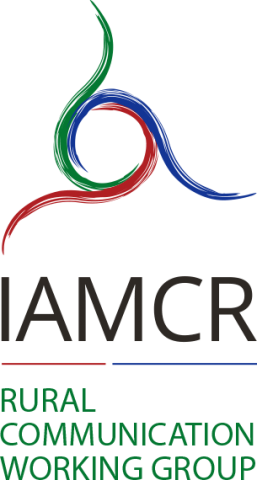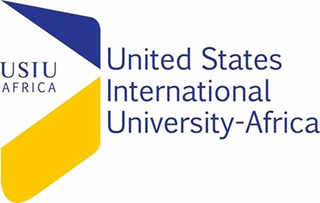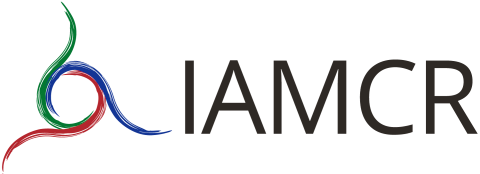Rural Communication Working Group - Call for Proposals 2021
The Rural Communication (RUC) Working Group of the International Association for Media and Communication Research (IAMCR) invites the submission of proposals for single papers and multi-paper sessions (the online conference equivalent of a panel in a face to face conference) for IAMCR 2021, which will be held online from 11 to 15 July, 2021. The conference will also have a regional hub in Nairobi, Kenya. Both the online conference and the regional hub will be hosted by the Department of Journalism & Corporate Communication of United States International University-Africa (USIU-Africa) in Nairobi. The deadline for submission is 9 February 2021, at 23.59 UTC.
See the IAMCR 2021 general call for proposals
Themes
IAMCR conferences address a wide diversity of themes defined by our 33 thematic sections and working groups. We also propose a single central theme to be explored throughout the conference with the aim of generating and exploring multiple perspectives. This theme is addressed in plenary and special sessions, and in some sessions of the sections and working groups. Not all submissions have to address this central theme.
The central theme for IAMCR 2021, Rethinking borders and boundaries: Beyond the global/local dichotomy in communication studies, is concerned with how changes in communication theory and practice are challenging our understanding of global and local, creating new identities and discourses, and enabling a hybrid glocalisation, with both positive and negative consequences.
Five sub-themes of this central theme have been identified: The rebirth of populist discourses; Activism and the new global social justice movements; Trends in global media ecosystems; Identity: Gender, class, ethnicity, religion, sexuality; and Communication for development in health, climate change and education. See the complete theme description and rationale here.
Conference model: Online with an African "hub" and global satellite activities
In alignment with the possibilities offered by the COVID-19 pandemic, and with the conference’s main theme, Rethinking Borders and Boundaries, IAMCR 2021’s conference will offer multiple modalities for participation. It will be primarily an online conference but will also have an African “hub” at USIU-Africa, and satellite activities at various points around the globe.The various components of the conference include:
1. Online Conference Papers – Abstracts submitted in response to the section and working groups CfPs will be reviewed by the sections and working groups and accepted authors will be invited to submit short conference papers (1,000 to 4,000 words). These papers will be grouped into sessions and published on the conference website prior to the conference on a platform that will enable discussion the conference.
2. Section and Working Group Online Sessions – IAMCR sections and working groups will curate a number of video sessions highlighting key issues within their thematic areas of specialisation.
3. Flow34 – A stream featuring videos that integrate academic and aesthetic narratives. Proposals for this component will be reviewed by the Flow34 team. Topics can originate from the entire field of Communication and Media Studies. The selected videos will be scheduled and presented on the conference platform.
4. Plenary Sessions – Several plenary sessions streamed from the conference hub at USIU-Africa will feature contributions from around the globe.
5. Special and Partner Sessions – These video sessions will be produced by IAMCR and its partners.
6. Nairobi Hub – In addition to being at the centre of the global online activities, the conference hub, at USIU-Africa, will host a regional face-to-face event (in accordance with the possibilities afforded by the pandemic). The regional event will interact with the global at several moments of the conference.
7. Other Regional/National Hubs – We are currently considering the involvement of other regional and national hubs and will be accepting requests from IAMCR members interested in sponsoring them.
This call for proposals is for the Online Conference Papers.
IAMCR members will have full access to all online components.
The Rural Communication Working Group aims to provide a platform for academic scholars and professionals working in the field of rural communication. The focus of our work is more than just rural communication service provision but exploring the breadth of formal and informal communication platforms to formal and informal communication processes. This encompasses technologies ranging from rural radio to ICTs, from farmer field schools to rural telecommunication infrastructure. The key is that we focus on communication in rural areas, and the intersection between communication and rurality. The motivation for this work comes from the recognition that rural contexts post particular opportunities and challenges for communication activities. If communication is to serve a social purpose, these dynamics need to be understood. Therefore, we focus on rural innovations and interventions, social change and development that responds in a sustained and inclusive manner to communication needs of rural populations.
For this conference, with the theme of “Rethinking borders and boundaries: Beyond the global/local dichotomy in communication studies”, we are interested in papers, multi-paper session proposals and facilitated discussion sessions that bring a critical lens to rural communication from a range of disciplinary and thematic contexts. We expect that for this conference theme there will be at least one multi-paper session about communication for rural development in health, climate change and education and one about rural communication in a changing global context. We would like to have a session that critically analyses methodologies in rural communication.
Further topics of interest to the working group include: innovative methodologies and new technologies for rural communication and extension; interdisciplinary multi-stakeholder actions and social learning; innovation system approaches and knowledge brokering; monitoring and evaluation for learning and institutional change; research and transdisciplinarity in rural communication for development theory and practice, and; mainstreaming communication in rural development policies.
Guidelines for abstracts
Abstracts submitted to the Rural Communication Working Group should have between 300 and 500 words and must be submitted online via IAMCR's online submission platform. Abstracts submitted by email will not be accepted.
It is expected that authors will submit only one (1) abstract. However, under no circumstances should there be more than two (2) abstracts bearing the name of the same author, either individually or as first author. No more than one (1) abstract can be submitted by an author to the Rural Communication Working Group. Please note also that the same abstract or another version with minor variations in title or content must not be submitted to more than one section or working group. Any such submissions will be deemed to be in breach of the conference guidelines and will be rejected.
Proposals are accepted for both single papers and multi-paper sessions (the online conference equivalent of a panel in a face to face conference). Please note that there are special procedures for submitting multi-paper sessions. You can find the detailed procedures when submitting your abstract online in the abstract submission system.
If your abstract is accepted, you will need to submit your full conference paper (1,000 to 4,000 words) by 7 June 2021, in order to be included in the programme.
Languages
The Rural Communication Working Group accepts abstract submissions in all three official languages of the association - English, French and Spanish.
The deadline to submit abstracts is 9 February 2021 at 23h59 UTC.
See important dates and deadlines to keep in mind
For further information about the conference contact nairobi2021 [at] iamcr.org
For further information about the Rural Communication Working Group, its themes, submissions and multi-paper sessions please contact: Rico Lie, Wageningen University, The Netherlands (rico.lie [at] wur.nl) or Sarah Cardey, University of Reading, United Kingdom (s.p.cardey [at] reading.ac.uk).


